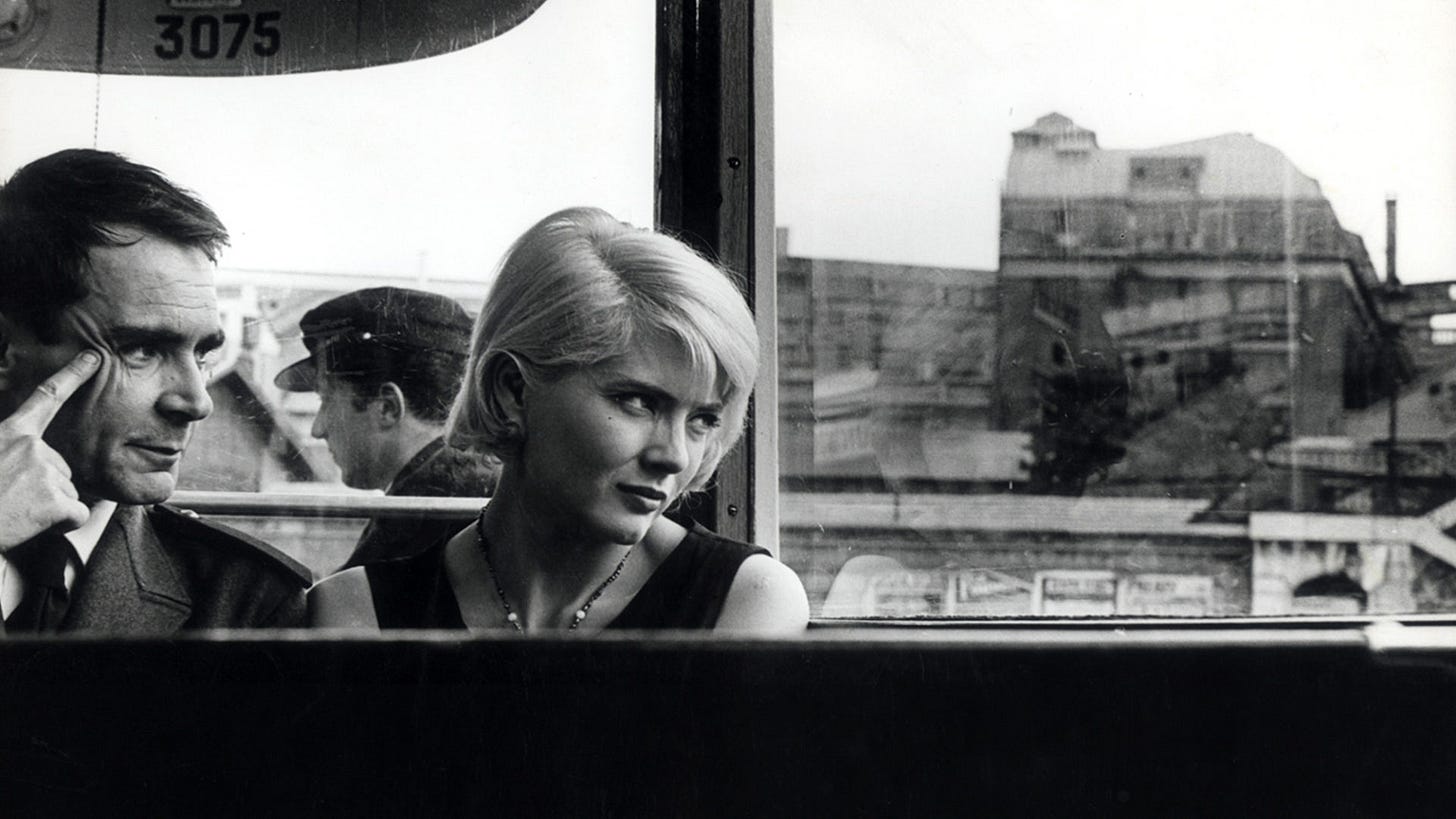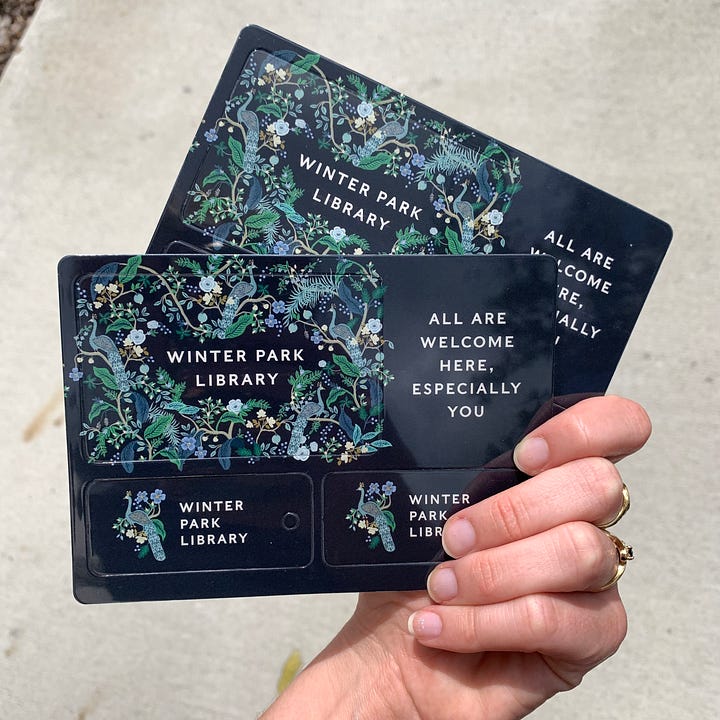#19: Life is Temporary, The Criterion Collection is Forever
Thoughts on pop culture and mortality this week

I once dated a guy who told me I referenced old movies and dated cultural events too frequently in conversation. “Your references alienate audiences,” he said, like a Nielsen analyst auditing our dialogue. “What if you tried talking about something everyone knows and likes? Like The Office?” We didn’t date for much longer.
Recently I’ve been asking myself where this lifelong obsession with pop culture comes from. What shapes a predilection? Why culture and not, say, chemistry or athletics? The most straightforward narrative begins in 2003 (I was 10) when, as a bribe for moving across the country, I got a cable television in my bedroom.1
Bored and lonely in a new city, my after school hobby became TV.2 Something to fill the time, something to help wait out the weeks of displacement. But even when playdates commenced and friendships were forged, the couch potato lifestyle stuck. Around this time Gilmore Girls reruns premiered on ABC Family (previously FOX Family and later Freeform). Suddenly the milquetoast morals of 7th Heaven became obsolete, So Little Time gags juvenile and redundant. Watching Gilmore Girls felt like sitting at the adult table for the first time, conversation and jokes zinging over my head but who cares because I was bearing witness to something more mature and therefore more interesting than myself. I felt the thrill and humility of my own ignorance (who were Bogie and Bacall??) and the inspired urgency to catch up. My first consciousness awakening in a way. A realization that entertaining, fun, cool things happened before me—a sentiment that the flavorless rotation of facts and dates in social studies classes never quite conveyed.3
Gilmore, with its whip-smart dialogue and appendix of niche cultural quips, captivated me completely. I set about researching, viewing, listening, and learning nearly every reference, aided by the handy guides included in the DVD box sets: Your Guide to Gilmore-isms: The 411 on many of the show’s witty and memorable wordplays and pop culture references. When I tell you these guides were my New Testament! My Torah! My Bhagavad Gita! The show was a treasure map for a young culturist. And an even more rewarding endeavor when paired with my taciturn father’s penchant for Turner Classic Movies. I often got a willing movie buddy to drive me to the library to check out The Philadelphia Story or Annie Hall.

This obsession paved the way for many more obsessions spanning television, film, books, music, and theater. With each new entry into my mental rolodex, I marveled at how these cultural touchstones could be both timeless and timely. The Anything Goes 1962 off-broadway cast recording felt just as relevant to me as Jimmy Eat World’s 2004 Futures. Something so precious in this discovery: my tastes, my passions were nestled alongside those twenty years my senior. And one day, eventually, twenty years my junior. What a concept for my adolescent brain! Art endures.
—
When I turned 30 I coincidentally started stewing quite a bit about death. I say coincidentally because I’m certain the birthday didn’t trigger this reaction. I felt no shame or unease about entering a new decade.4 Instead, it was a response to the post-pandemic world, nearly back to normal as evidenced by everyone’s holidaying. For two, three years, my thoughts and actions were carefully attuned to minimizing grave illness for myself and others. Now, finally, there would be time to travel, time to reconnect with friends, time to propel my life forward. Yet as excitement and possibility replaced fear and anxiety, the looming concept of mortality didn’t let up. Like sands in the hourglass, so too were the days of my life… and everyone around me. A horrible precursory rumination when a couple months later a long, fraught health emergency at home underscored just how tenuous human life is. Hale and hearty one day, hospitalized for months the next. The Universe…….. she’s funny that way.
Lately (probably because I’m sensitive to the topic) I’ve noticed a number of meditations about mortality online and off, from friends and strangers alike. Rachel Bloom is performing a one-woman musical comedy that “is definitely NOT about the ever-present spectre of death… that will in NO way explore the pandemic and all the tumultuous events that ensued in her personal life.” A few weeks ago I caught up with a friend from graduate school who is building a business that aims to de-stigmatize conversations around death, starting with an assessment that reveals implicit attitudes toward death and afterlife. This week Martin Scorsese’s thoughts about his impending mortality were published in a GQ interview. An “obsessive glutton” for cinema and books, one of the bitterest pills for him to swallow is accepting that, at 80, there simply isn’t enough time to learn or do everything he’d wished before death.
In a much circulated piece for New York Magazine, Katy Scheinder writes about post-pandemic disorientation among those whose lives appeared pandemic-proof on paper (married, childless, affluent, job secure). Losing three years of normal life development—the Pandemic Skip—affected us all. “My skip, I realized, had carried me swiftly through what would have been my last couple years of socially permissible carelessness,” she writes of her late 20s. “[W]hat I’d dropped into didn’t especially appeal, particularly after having been trapped in the house-cats-in-a-bag style for three years: real adulthood with all its attendant concerns.”
She’s right at pointing out this malaise and the discomfort of reconciling the disparate pandemic experiences of body and mind, but I wonder if this probing is a destructive way of contending with mortality. One that makes us unnecessarily panicky, makes us look at our neighbors in comparison, and rattles us when timelines are out of sync. A frantic adherence to a paint-by-numbers template when what we really should be asking is, what color do I want to paint my sky today? Lavendar? Turquoise? Marigold?
My in-joke is to issue a “COVID REBATE” to frazzled friends and family who broach such topics. Not where you’re supposed to be in your career? COVID Rebate, give yourself three years’ grace. Breaking up with someone you should have broken up with five years ago? COVID Rebate! You’re only on the hook for two!!! A lighthearted bit that unlocks a more expansive framing of the pandemic. Maybe, in the key of “everyone you meet is grieving,” we acknowledge that everyone is playing catch-up. Everyone is going at their own pace. Staving off thoughts of mortality with a checklist or timeline or by judging others for veering off course only prolongs the disquietude, I think. Being a little careless in your 30s sans “social permission” isn’t so outrageous in the grand scheme of things.
In a session with Austin Kleon, artist consultant (the coolest job title ever) Beth Pickens makes a case for everyone—especially artists—to cultivate a death acceptance practice. The idea being, writers and artists have a lot of work to make and the sooner they can move around the fear of creating the better. She says that throughout history artists have been our courageous pioneers, those gifted with the ability to explain death and the divine to us. They’re entrusted with an additional soul to feel, to process, to create. We rely on their interpretations to make sense of the chaos.
Case in point, one of my favorite responses to the question “what happens when we die?” comes from actress Keke Palmer in a recent interview:
Art and culture have always been my prisms for viewing the world— it makes sense that as I now grapple with mortality, I turn to them for guidance and reassurance. Those countless hours binging television as a preteen, reading Meg Cabot paperbacks, shuffling songs on my iPod Nano were fundamental to my search for purpose and meaning. Critical time spent honing my ability to recognize great art, to observe how it paid homage to and built upon influences of the past. Everything is a remix, after all. I empathize with Scorsese and his insatiable hunger for cinema and books. What a peaceful thought, then, that art endures, culture endures. We see its reiterations daily. There will always be more than enough to explore, to comfort myself with, to learn from. My foundational texts time and again.
My death acceptance practice is in its elementary stage, I’m woefully behind on developmental “norms” as dictated by society, but when I watch Casablanca for the millionth time and think about all the people who ever watched this movie, all the people who will ever watch this movie, I’m warmed by the perspective that everything works out in its own way, even if we imagined it differently. The end is just the beginning.
Sidewalk Reporting


Living close to Rifle Paper Co. HQ has its perks. The best by far is our cute new library cards, designed by the studio
Drawing bouquets is my latest hobby which is appropriate given the amount of flower content I subject you guys to
I saw Bottoms a couple weeks ago. Pacing was kinda off, otherwise fun for those of us who enjoy high school comedies! I mention it here because everyone onscreen was wearing silver jewelry. This plus Olivia Rodrigo’s sterling silver GUTS rings is confirmation to me: the precious metal changing of the guard is here!!! Are there TikToks about this yet? Someone tell me. (Also, actress Havana Rose Liu is the daughter of the married founders of The Knot, which I thought was good trivia)
Exactly one (1) friend of the newsletter shares my obsession with Holly Humberstone. That is TOO LOW A FIGURE. Her newest single came out this week, but I think you should start with her album, Can You Afford To Lose Me?
Thanks for reading!!!!! I hope you have a nice weekend!
Funny to consider now that pretty much every child has access to television/streaming via a personal device
This doesn’t seem that unthinkable for a kid in 2023, but this was pre-binge culture, so trust me, I was an outlier with my intensity. Mainlining television took effort. Querying libraries, queuing Netflix DVDs, searching for discounted box sets at Blockbuster was time-consuming
Shoutout to VH1’s I Love the [Insert Decade] series that also set a dangerous precedent for gulping down outdated cultural references at an alarming pace. I once made a Lloyd Dobler/Say Anything joke to my 7th grade world history teacher who appreciatively barked laughter and asked how old I actually was
Though I’ll allow that internalized media and beauty industry narratives that reinforce the “I’m an old hag at 30” trope trudged up these feelings on a subconscious level…. Frightening, but possible!





